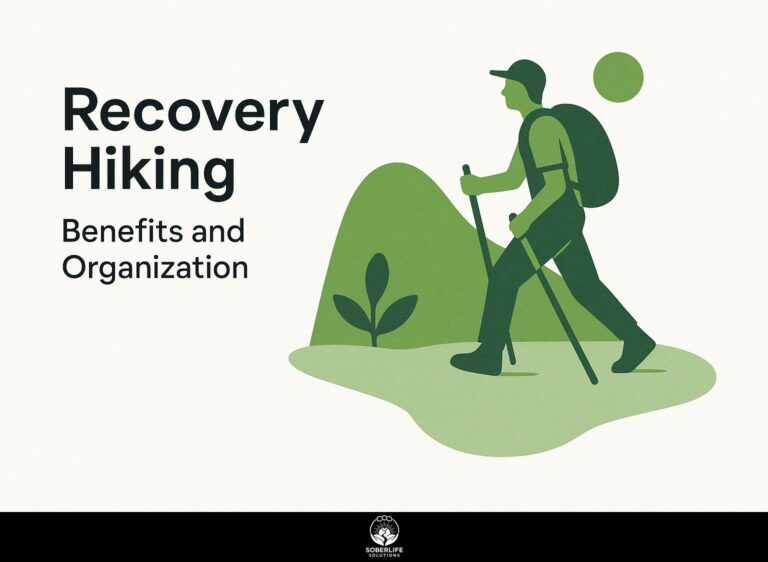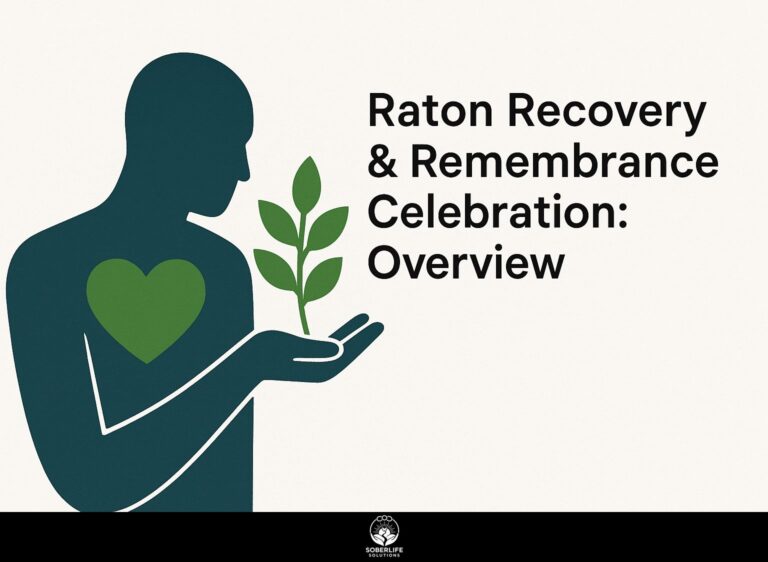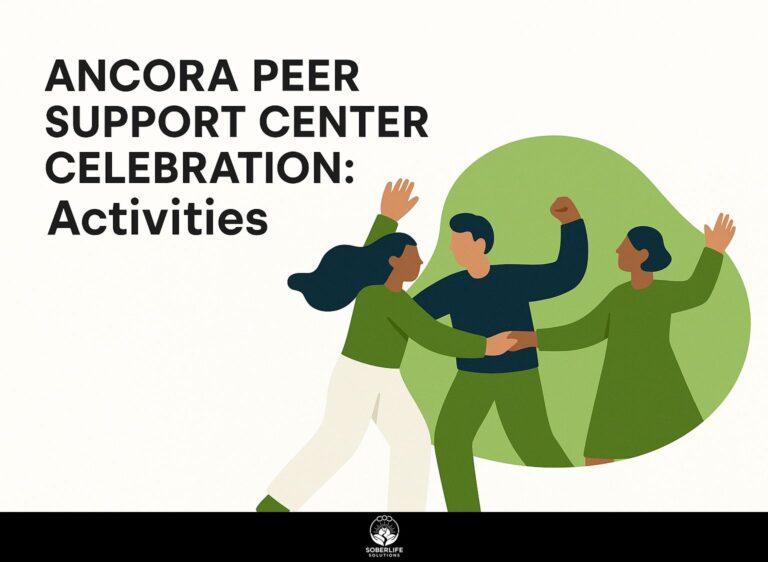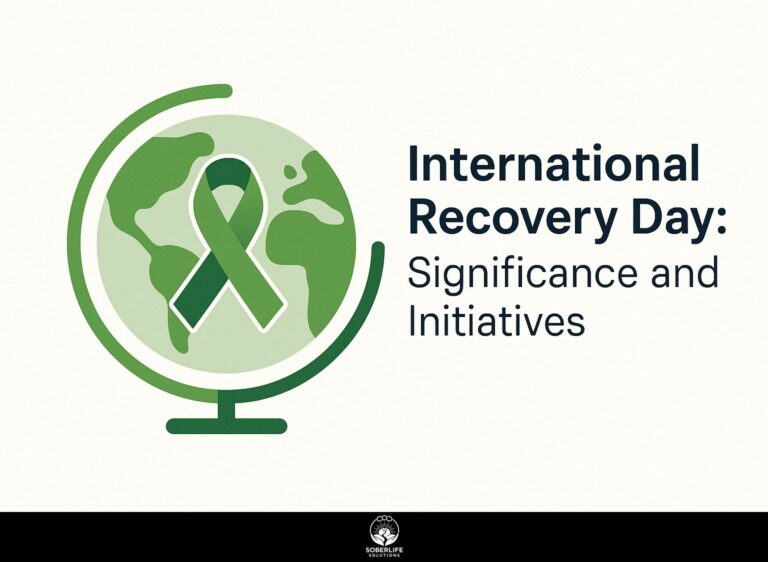Youth Engagement in Recovery Month: Benefits and Participation
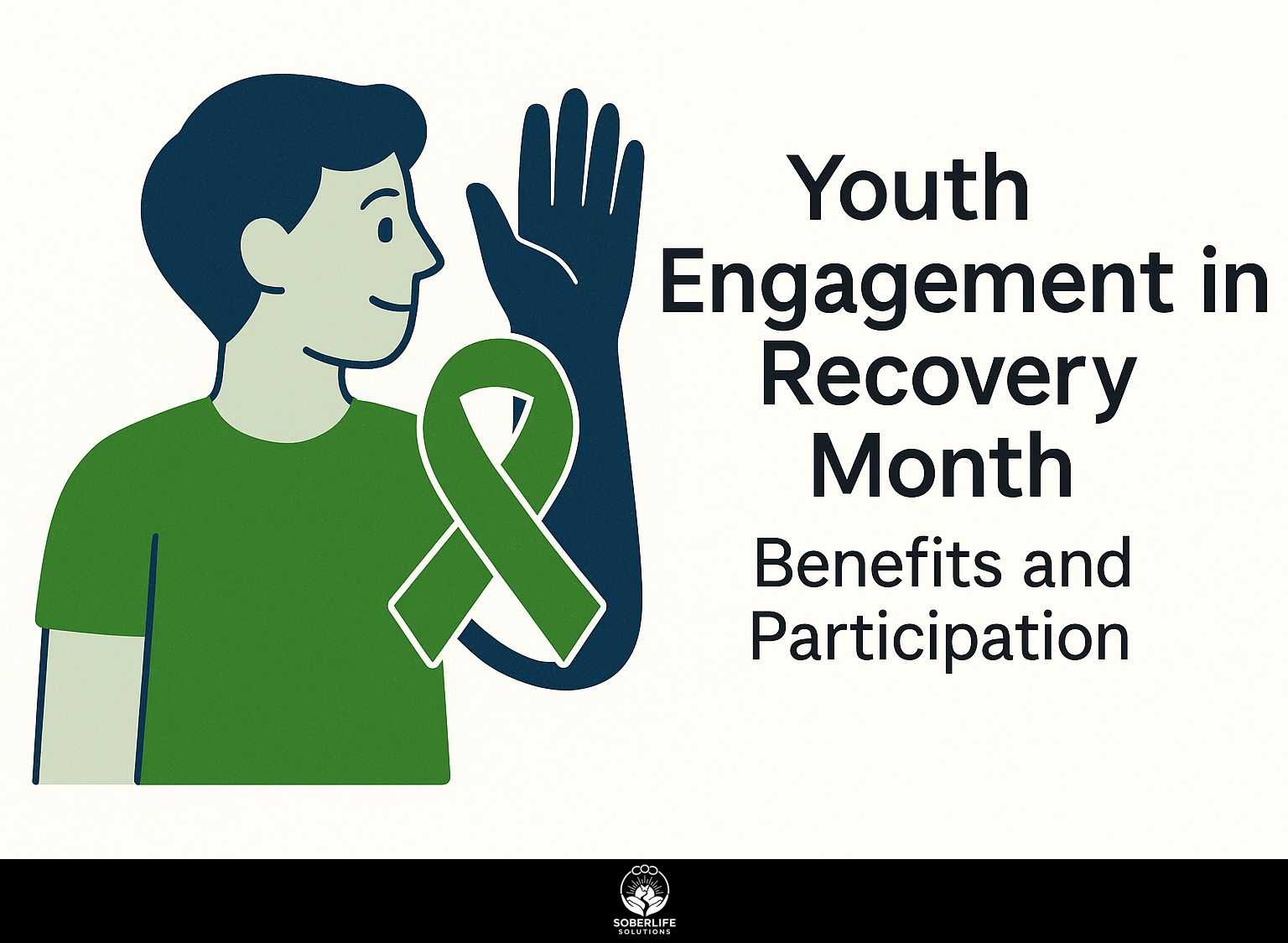
Including young people in efforts to overcome addiction is important during National Recovery Month. Julia Floyd-Ventura of the Jamaica Family Wellness Center emphasizes the importance of addressing mental health and substance use challenges through active participation. This article looks at the many advantages of getting young people involved in recovery efforts, showing how they can help with treatment programs and build a supportive group. Learn how young individuals can create real change!
Key Takeaways:
Overview of Recovery Month
Established in 1989, National Recovery Month promotes the societal benefits of treatment for substance use disorders and highlights the role of community support in recovery.
Each September, this event encourages individuals in recovery to share their experiences, showing the benefits of treatment and the important role of support from others.
It features various events like local festivals, community outreach programs, and educational workshops, aimed at increasing awareness about addiction and mental health challenges.
Groups like SAMHSA and local health departments offer important resources and kits to help communities get involved in advocacy. For expanded context, the CDC provides a comprehensive National Recovery Month Partner Toolkit that can guide community efforts. Additionally, National Recovery Month’s significance and key events further highlight its importance in spreading awareness and fostering collaboration.
This group activity encourages awareness and helps decrease the negative perception of addiction and mental health problems.
Importance of Youth Engagement
Involving young people in Recovery Month activities helps them feel included, encourages them to get involved in their communities, and builds resilience and awareness.
This engagement can manifest in various ways, such as organizing community wellness events, peer support groups, and educational workshops.
For instance, when young people put together events such as a neighborhood art exhibit or a sports competition, it raises awareness about recovery and offers young people a chance to meet and share their stories.
Using tools such as social media campaigns can help these initiatives grow, allowing participants to connect with more people and build supportive networks. This involvement helps young people and also strengthens community bonds, encouraging recovery and support (as highlighted in a recent study by Taylor & Francis).
Benefits of Youth Engagement in Recovery Month
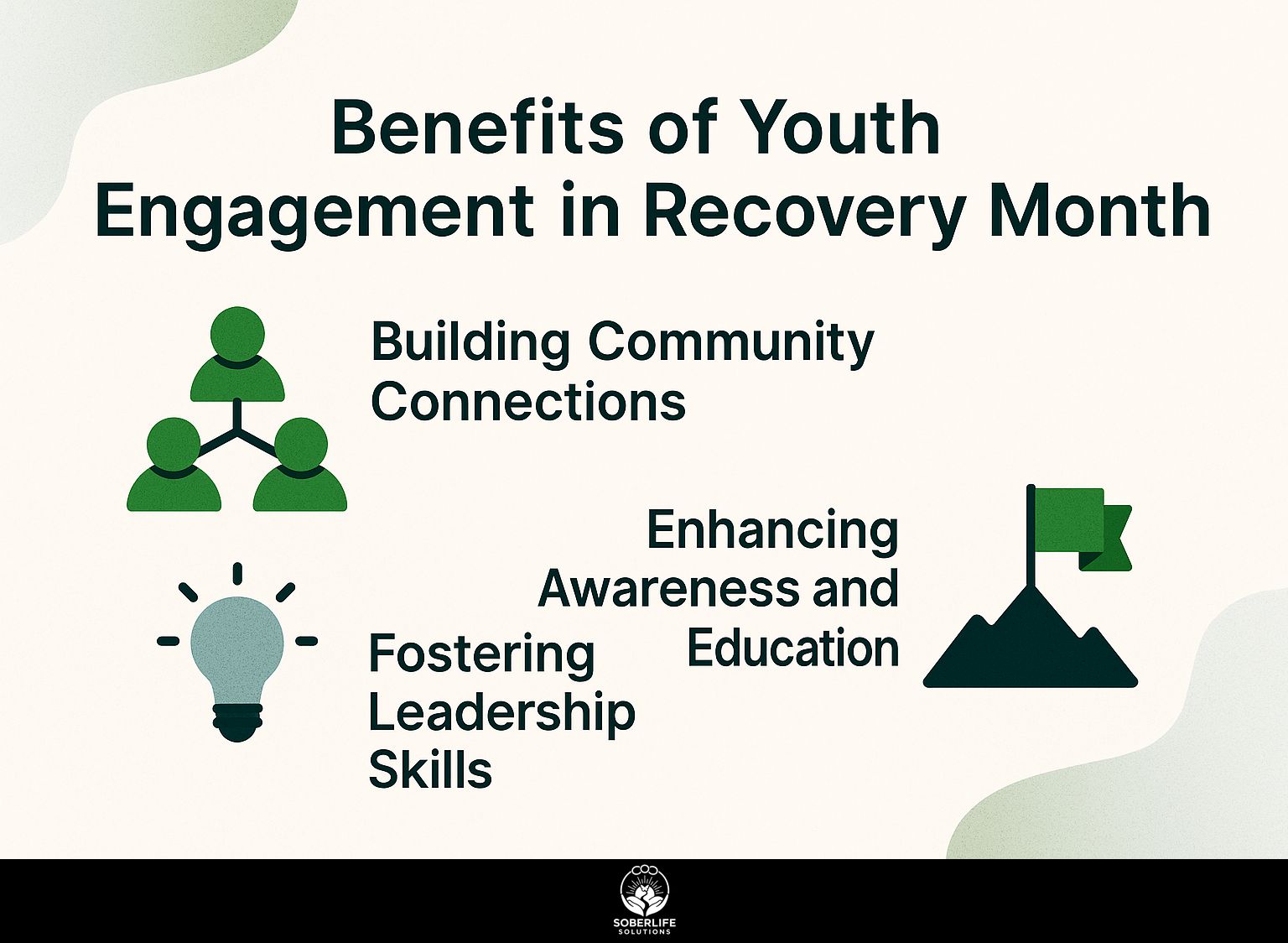
Getting young people involved during Recovery Month brings many benefits that continue after the month ends, strengthening community strength and helping personal development. For an extensive analysis of this trend, our comprehensive study on peer support groups for young adults examines the tailored support these groups offer.
Building Community Connections
When youth actively participate in Recovery Month activities, they build meaningful connections with peers and families, promoting long-term community support.
Joining workshops, art projects, or sports events encourages people to connect and work towards common goals.
For example, organizing a community mural project allows youth to express their recovery stories visually, strengthening bonds through creativity.
Partnering with local organizations to host recovery-themed sports tournaments encourages teamwork and builds friendships.
Joining peer-support groups helps young people feel connected and leads them to freely talk about their experiences.
In the end, these activities build strong relationships and support a helpful setting for recovery.
Enhancing Awareness and Education
Involving young people helps them learn about substance use and recovery, giving them the information needed to teach their friends and families.
- To effectively spread awareness, youth can organize workshops focusing on the effects of substance use, utilizing local experts for credible information.
- Social media campaigns can spread their message widely; platforms like Instagram and TikTok are great for sharing success stories and educational content.
- For instance, the “Youth Speak Out” initiative increased engagement by 50% through student-led videos addressing peer pressure.
- Creating brochures with details about local services or helplines can provide useful support.
By using these methods, young people can help create a healthier community.
Fostering Leadership Skills
Joining Recovery Month helps young people build leadership skills important for growing personally and within communities.
Joining local projects strengthens key skills and makes connections stronger. For instance, young people can create workshops about mental health to raise awareness, which will help them get better at public speaking and managing projects.
Youth-driven initiatives, such as peer mentoring programs, improve advocacy abilities and encourage resilience. Tools like Trello can help keep these projects on track by assigning tasks and meeting deadlines.
When young people participate in these activities, they build confidence and learn skills that will benefit them in their upcoming projects.
Ways Youth Can Participate
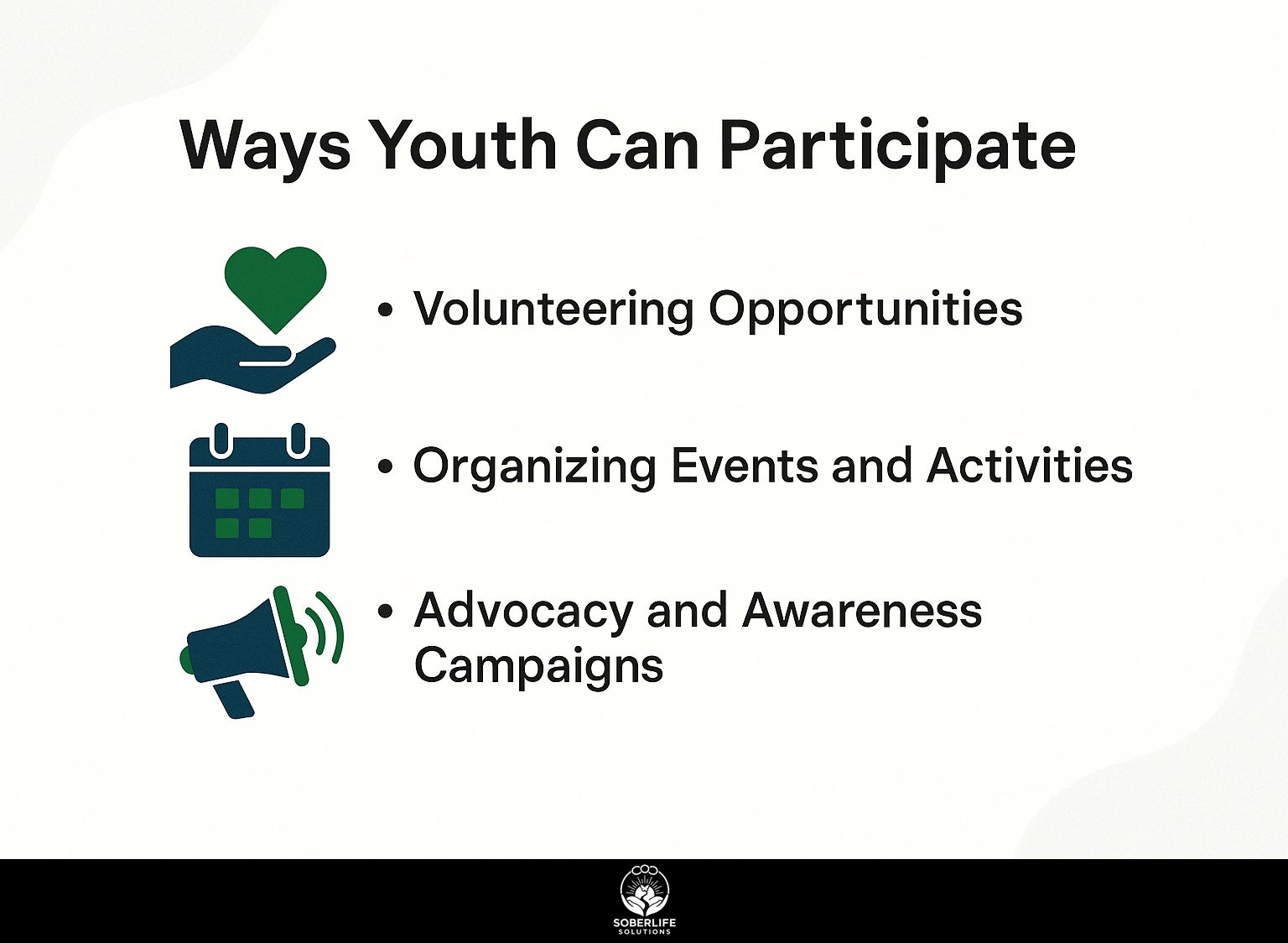
Young people have many ways to participate in Recovery Month, such as helping out or planning activities that bring people together. Worth exploring: Ancora Peer Support Center Celebration: Activities for ideas that can inspire engaging and supportive events.
Volunteering Opportunities
Volunteering during Recovery Month offers youth hands-on experience in supporting those in recovery, while also reinforcing their commitment to the cause.
Local organizations like the Jamaica Family Wellness Center, where youth can contribute meaningfully, include:
- The Community Outreach Program Young people can help arrange wellness classes that teach stress handling and healthy ways to cope.
- Youth Peer Support Group Here, they can be trained to guide conversations and share experiences, creating a helpful setting.
- Local Food Banks: Volunteers can help prepare meals and organize food drives, addressing basic needs for those in recovery.
By joining these initiatives, young people can make a difference in their community and learn to understand and care about others.
Organizing Events and Activities
Youth can take the lead in organizing events that raise awareness about recovery, such as community walks, workshops, and informational booths.
- To begin planning a significant event, select a theme that resonates with the community, such as ‘Building Resilience’ or ‘Breaking Stigmas.’
- Assemble a team of motivated volunteers to delegate tasks effectively. Choose a suitable venue, ensuring it is accessible and welcoming.
- To promote your event, use social media sites such as Facebook and Instagram. Consider creating event pages to reach out to potential attendees.
Successful examples, like the annual walk organized by the local youth group, raised both funds and awareness, drawing in over 200 participants last year.
Advocacy and Awareness Campaigns
Youth-led advocacy campaigns can greatly change how the public views addiction and recovery, creating a supportive and informed environment.
To successfully build these campaigns, young people should use different methods.
- Reach many people by posting interesting photos and stories on social media sites like Instagram and TikTok.
- Partner with local organizations, such as community centers or schools, to hold informational sessions and workshops about addiction recovery.
- Plan public events, like youth-led forums or workshops, to connect directly with the community, enabling open dialogue and dispelling myths related to addiction.
By using these methods together, young supporters can make their message stronger and encourage long-term change.
Challenges in Youth Engagement
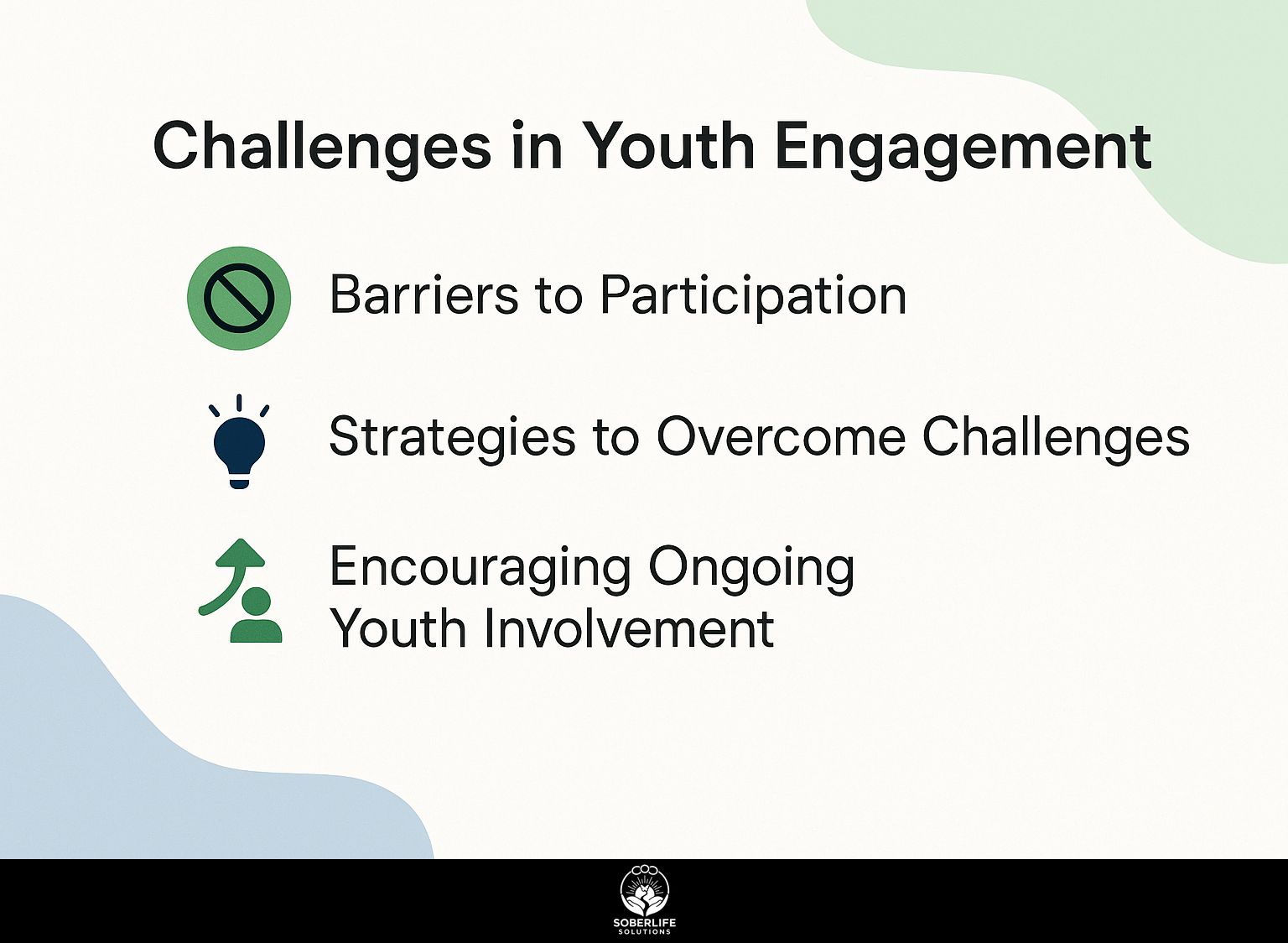
Although there are benefits, young people face many challenges when joining Recovery Month events, which can stop them from participating.
Barriers to Participation
Barriers such as lack of awareness, time constraints, and social stigma often prevent youth from engaging meaningfully in Recovery Month activities.
To overcome these challenges, organizations can implement targeted outreach programs that focus on education and engagement.
For instance, hosting informational workshops in schools and community centers can raise awareness about Recovery Month’s significance. Collaboration with social media influencers can help dispel stigma by promoting relatable narratives. Some leading researchers in the field from the UK Government have highlighted similar barriers and enablers to participation among youth.
Providing flexible schedules for events, like letting people join online, can help overcome time limits, allowing young people to participate more easily.
Sharing success stories from peers can inspire others to join the recovery dialogue.
Strategies to Overcome Challenges
Implementing targeted strategies can help overcome barriers to youth participation, ensuring their voices are heard in Recovery Month.
To increase youth participation during Recovery Month, try these practical strategies.
- Organize workshops that address specific issues young people face, such as substance use or mental health. Collaborate with local schools and organizations to host these events, providing resources and support.
- Use social media sites like Instagram and TikTok to run awareness campaigns. By sharing content that young people find relatable, you can help them feel a personal connection.
- Set up mentorship programs where younger leaders can motivate others, creating a feeling of unity and shared duty in recovery work.
Encouraging Ongoing Youth Involvement
To make a lasting difference, it’s important to motivate young people to keep participating in recovery activities throughout the year, not just during Recovery Month.
One effective approach is to establish regular peer support groups that meet monthly. These gatherings can include guest speakers, skill-building workshops, and social activities to maintain enthusiasm and build community.
Youth can participate in volunteer opportunities, such as helping at local shelters or organizing community events.
Engaging in social media campaigns to promote recovery stories and successes can also extend their reach. By building relationships and offering regular learning opportunities, you make a place where young people feel confident and encouraged to keep working on their recovery process.
Frequently Asked Questions
What is Youth Engagement in Recovery Month?
Youth Engagement in Recovery Month is a yearly campaign that helps people understand the benefits of involving young people in addiction recovery and encourages them to join activities and events related to recovery.
Why is it important for youth to be engaged in Recovery Month?
Youth engagement in Recovery Month allows young people to be an active part of the recovery community and to learn about the challenges and successes of others in recovery. It also helps to reduce stigma and promote peer support.
What are the benefits of youth engagement in Recovery Month?
Youth engagement in Recovery Month can lead to increased self-esteem, improved mental health, and a sense of belonging and purpose for young people. It also lets people share what they know and have been through, which can aid in the healing process.
How can young people participate in Recovery Month?
There are many ways for young people to participate in Recovery Month, such as attending events, sharing their stories, volunteering, and promoting the campaign on social media. They can also organize their own events or activities to raise awareness.
Is there a specific age range for youth engagement in Recovery Month?
No, there is no specific age range for youth engagement in Recovery Month. Anyone who identifies as a young person and is interested in promoting addiction recovery can participate in the campaign.
Are there any resources available for youth interested in participating in Recovery Month?
Yes, there are many resources available for young people who want to get involved in Recovery Month. These include information on events, social media graphics, and tips for organizing activities. You can find these resources on the campaign’s official website or by contacting a local organization involved in addiction recovery.

